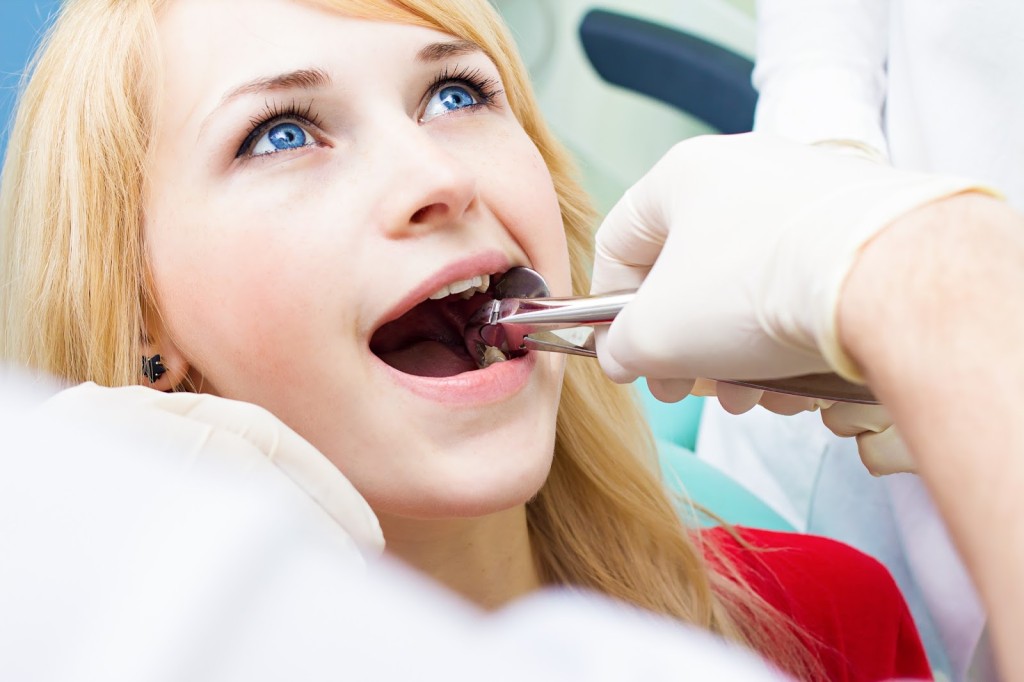When a tooth becomes severely damaged and other teeth are at a risk because of it, it has to be removed. Although generally dentists at Rensselaer family dental center, prefer saving the tooth by root canal, instead of removing the teeth, but in many cases tooth extraction becomes inevitable and has to be performed.
By the sounds of it, tooth extraction appears to be an extremely painful procedure that has terrible consequences. However, if carefully performed and done meticulously, tooth extraction can be a very effective and crucial procedure to protect your entire buccal cavity. Even though tooth extractions are generally considered as a last resort by many dentists, it is a very common procedure.

What Leads to Tooth Extraction?
As tough as our teeth are, they are also one of the most vulnerable parts of our body as they are directly exposed to bacterial infection. Plaque is a bacterial build up around your teeth that slowly eats them away and causes infection. Sugar filled and acidic foods increase the buildup of a plaque as they provide an ideal environment for the bacteria to grow. Moreover, alcoholic beverages, caffeine, tea and nicotine also promote a steady growth of bacteria in your mouth.
If the plaque is not regularly removed, or the teeth are constantly exposed to faulty stuff then the bacteria starts eating away the enamel. Enamel is the tough outer covering of the teeth that covers a soft pulp called dentin and nerves. As the enamel becomes weak, the bacteria start entering the internal part of the teeth causing severe pain and inflammation. The eroding enamel may cause cavities or force the crown to break, hence leading to the chipping off if the tooth. As the infection further progresses, the tooth becomes loose and abscess may also form.
Apart from plaque accumulation on the tooth, gum diseases like gingivitis and periodontisis may also lead to tooth infection. In severe periodontisis, gaps and pocket start to appear around the tooth, hence giving more room for bacteria to grow. Mostly, dentists prefer dealing with the root cause instead of removing the tooth. If only your tooth is affected then they might perform a root canal to clean the pulp; they may also only prescribe antibiotics in minor cases. In case of gum diseases, antibiotics and gum treatment is their first priority. In cases where the tooth becomes so badly infected that it becomes impossible to save it, Rensselaer dentists prefer doing a tooth extraction. In fact, in such situations, extraction is a better option than root canal as the latter might not clean the teeth hence allowing the infection to continue. Severely infected teeth may also disturb your overall health by affecting your immune system.
How is Tooth Extraction Done and what happens After it?
Before starting off with the procedure, the dentists administer anesthesia in the patient to make it pain free. After the tooth is pulled out, you may require stitches and cotton pad is placed on top of the wound to stop bleeding. Although you don’t feel any pain during the procedure, you might feel sour for sometime after the procedure. You need to be very careful about what you eat and change the cotton pads if the bleeding continues. In cases where the infection is extreme, dentists may prescribe antibiotics even after the procedure.
Once the tooth is extracted, and the soreness is gone, the dentists replace the gap left by the extracted tooth with a bridge or a transplant. It is very important to get the implantation done as the hollow part will force the tooth above to be pulled down. Also, it will cause shifting of the teeth and make it very difficult to chew. Remember, that you must never stop taking care of your teeth, even when the faulty tooth is removed.
